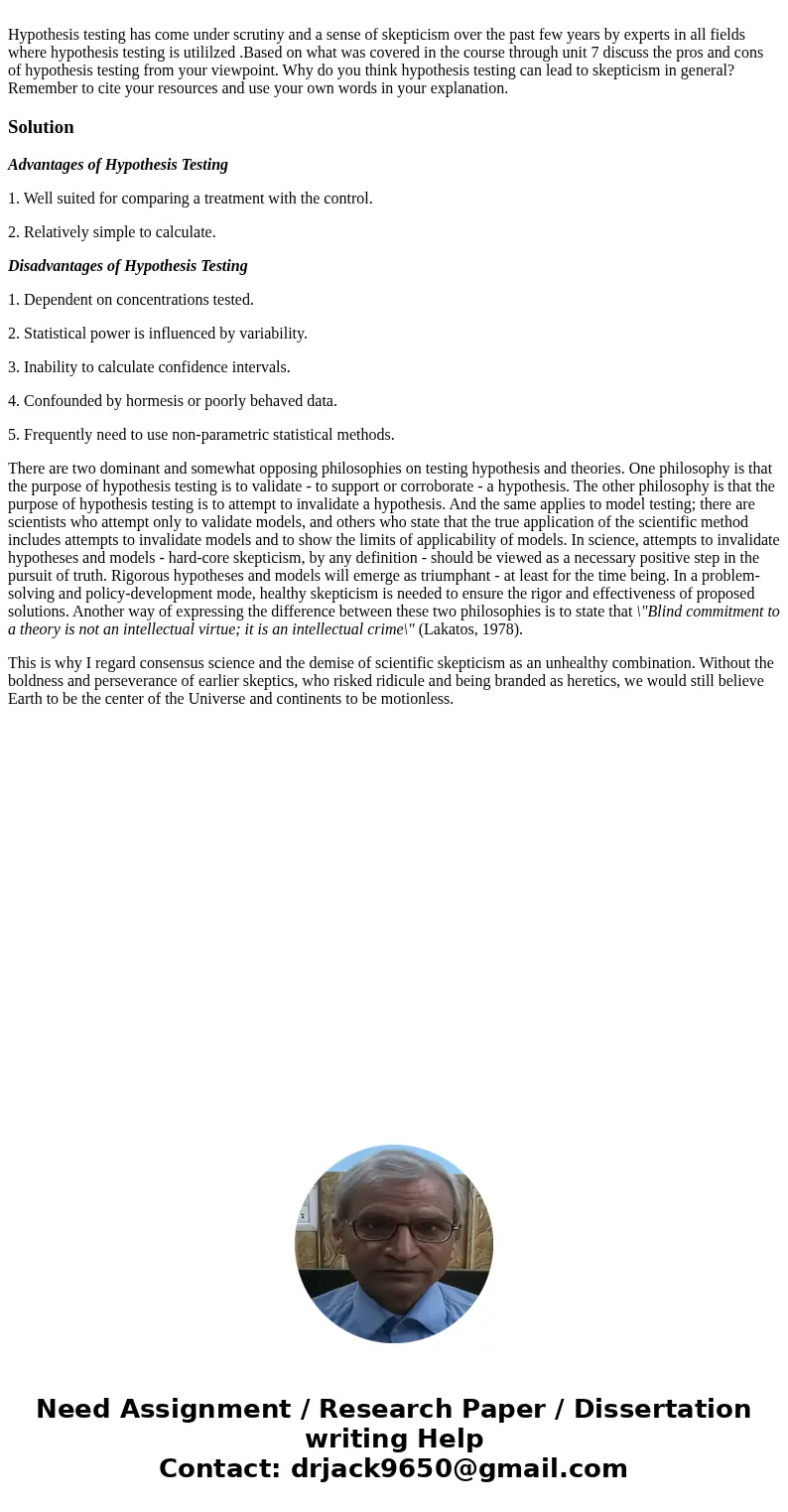Hypothesis testing has come under scrutiny and a sense of sk
Hypothesis testing has come under scrutiny and a sense of skepticism over the past few years by experts in all fields where hypothesis testing is utililzed .Based on what was covered in the course through unit 7 discuss the pros and cons of hypothesis testing from your viewpoint. Why do you think hypothesis testing can lead to skepticism in general? Remember to cite your resources and use your own words in your explanation.
Solution
Advantages of Hypothesis Testing
1. Well suited for comparing a treatment with the control.
2. Relatively simple to calculate.
Disadvantages of Hypothesis Testing
1. Dependent on concentrations tested.
2. Statistical power is influenced by variability.
3. Inability to calculate confidence intervals.
4. Confounded by hormesis or poorly behaved data.
5. Frequently need to use non-parametric statistical methods.
There are two dominant and somewhat opposing philosophies on testing hypothesis and theories. One philosophy is that the purpose of hypothesis testing is to validate - to support or corroborate - a hypothesis. The other philosophy is that the purpose of hypothesis testing is to attempt to invalidate a hypothesis. And the same applies to model testing; there are scientists who attempt only to validate models, and others who state that the true application of the scientific method includes attempts to invalidate models and to show the limits of applicability of models. In science, attempts to invalidate hypotheses and models - hard-core skepticism, by any definition - should be viewed as a necessary positive step in the pursuit of truth. Rigorous hypotheses and models will emerge as triumphant - at least for the time being. In a problem-solving and policy-development mode, healthy skepticism is needed to ensure the rigor and effectiveness of proposed solutions. Another way of expressing the difference between these two philosophies is to state that \"Blind commitment to a theory is not an intellectual virtue; it is an intellectual crime\" (Lakatos, 1978).
This is why I regard consensus science and the demise of scientific skepticism as an unhealthy combination. Without the boldness and perseverance of earlier skeptics, who risked ridicule and being branded as heretics, we would still believe Earth to be the center of the Universe and continents to be motionless.

 Homework Sourse
Homework Sourse